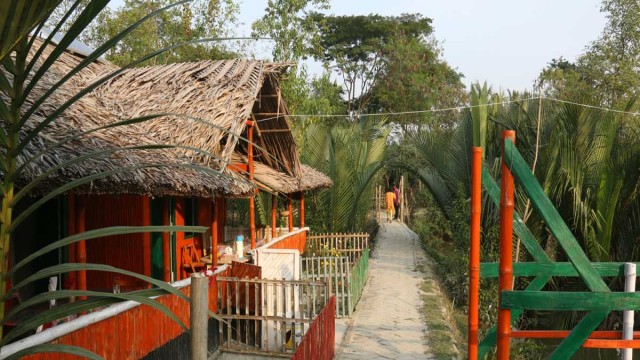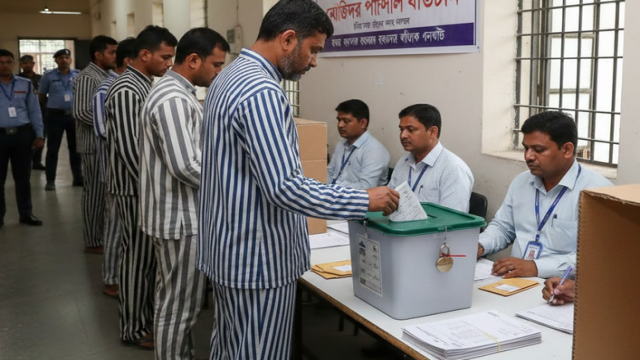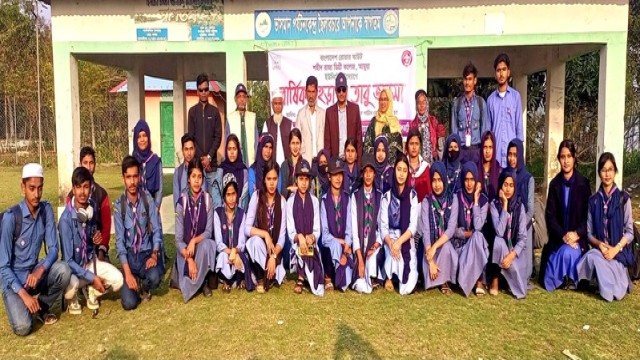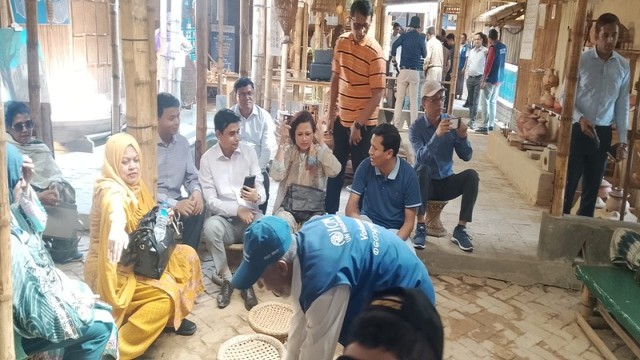Dhaka, Oct 16 (V7N) – Bangladesh’s tourism industry stands at a crucial crossroads. Despite its abundance of natural beauty, cultural diversity, and historical heritage, the country has yet to establish a fully developed model of sustainable tourism. In today’s global context, ecotourism — or environmentally responsible travel — is no longer a luxury, but a necessity for the planet’s and the nation’s future.
What Is Ecotourism and Why It Matters
Ecotourism is a form of travel that promotes respect for nature, biodiversity, and local culture. Its core principles are to conserve natural resources, engage local communities, and ensure that tourism revenue benefits them directly.
With growing concerns about climate change, deforestation, biodiversity loss, and rising carbon emissions, global tourism is shifting toward an eco-conscious model guided by the principle: “Conservation, not exploitation.”
Ecotourism Potential in Bangladesh
Bangladesh is blessed with enormous potential for ecotourism across almost every region:
– The Sundarbans: The world’s largest mangrove forest, home to the Bengal tiger, spotted deer, saltwater crocodiles, and Irrawaddy dolphins. It offers unique opportunities for guided forest tours, wildlife photography, and river cruises through a UNESCO World Heritage Site.
– Sylhet and Tea Gardens:
Lush green hills, waterfalls, and vibrant ethnic cultures make Sylhet a sanctuary for nature and culture enthusiasts. Eco-friendly tea garden tours and homestays with indigenous communities are growing in popularity.
– Cox’s Bazar and Saint Martin’s Island:
The world’s longest sea beach and Bangladesh’s only coral island present rich marine biodiversity. Responsible snorkeling, coral conservation tours, and beach clean-up activities are key to sustaining these fragile ecosystems.
– Rangamati, Bandarban, and Khagrachhari:
The hill districts offer breathtaking views of lakes, tribal heritage, and jhum (shifting) cultivation landscapes. Community-based tourism and trekking routes can promote income while preserving indigenous culture.
However, the reality paints a troubling picture. Uncontrolled waste disposal, excessive commercial construction, lack of zoning and regulatory enforcement, and development projects undertaken without local consultation are rapidly degrading natural habitats. This highlights the urgent need to implement a genuine ecotourism framework in Bangladesh.
Benefits of Ecotourism
– Environmental protection: Preserves natural landscapes, forests, and biodiversity.
– Economic empowerment: Generates local employment through homestays, handicrafts, and guide services.
– Cultural preservation: Promotes respect for indigenous traditions, crafts, and customs.
– Education and awareness: Encourages visitors to value conservation and responsible travel.
– Sustainable growth: Balances economic development with environmental stewardship.
Challenges and the Way Forward
Bangladesh’s main challenge lies in the absence of long-term planning and the prevalence of unregulated development. Resort construction on sand dunes in Cox’s Bazar or clearing mangrove forests in Teknaf directly contradicts the principles of ecotourism.
To build a sustainable tourism model, the following actions are crucial:
Full implementation of the National Ecotourism Policy.
Inclusion of local communities in tourism planning and decision-making.
Strict waste management and biosafe zone enforcement in tourist hotspots.
Investment in training programs for eco-guides, homestay operators, and community-based tourism initiatives.
Strengthening public–private partnerships (PPP) to ensure accountability and shared benefits.
Future Outlook
If Bangladesh truly aims to achieve the United Nations’ Sustainable Development Goals (SDGs), ecotourism must be at the heart of national tourism strategy. Protecting nature is not only an environmental obligation — it is essential for the survival of the tourism industry itself.
The soul of Bangladesh’s tourism lies in its rivers, forests, hills, and people. Nurturing these assets through ecotourism is not merely a policy option; it represents the blueprint for the country’s tourism revival.
By: Siddikur Rahman, Guest Writer
END/SRC/SMA/































Comment: